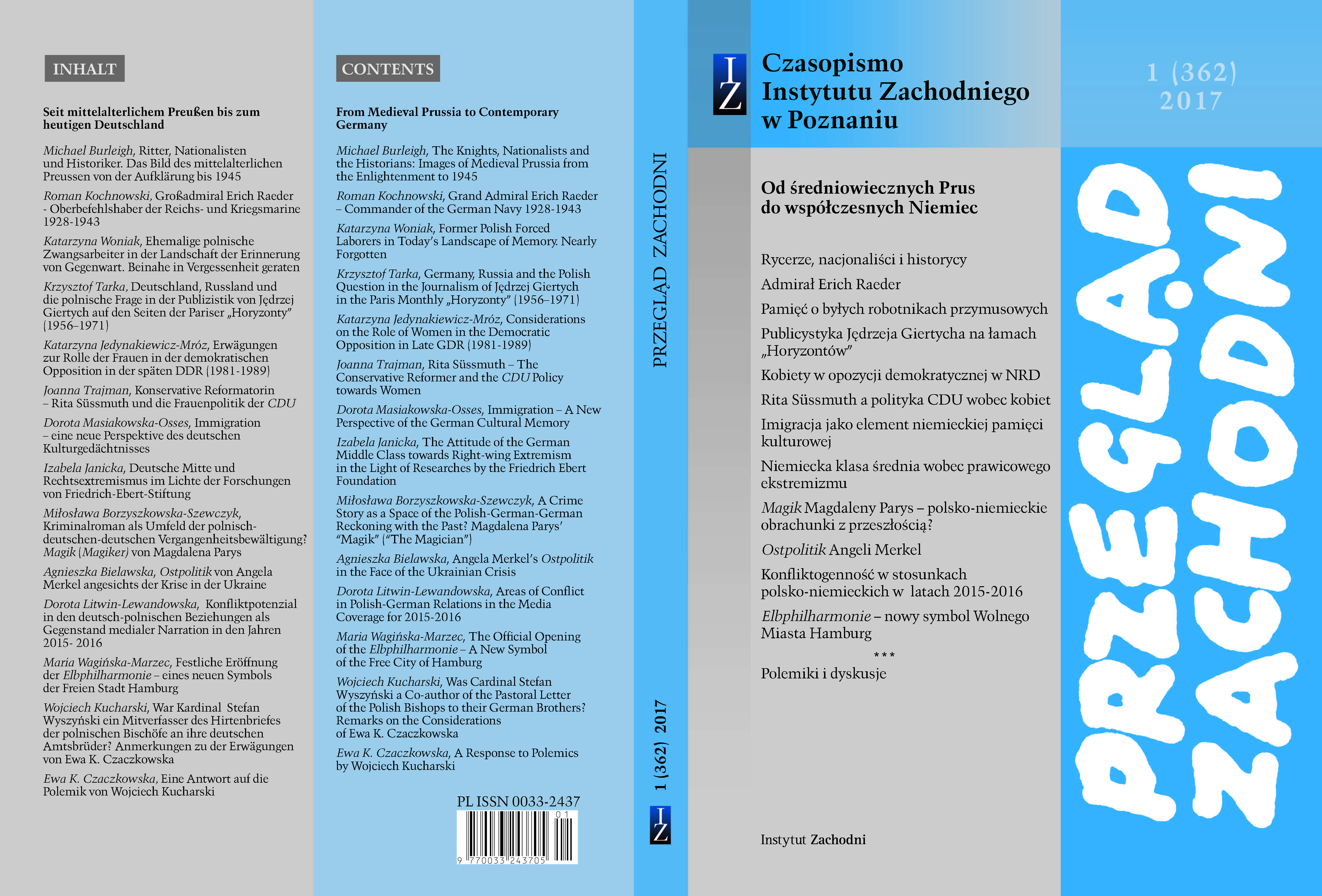Niemieckie Ordo i społeczna gospodarka rynkowa w procesie europeizacji
The German Ordo and the Social Market Economy in the process of Europeanization
Author(s): Justyna BokajłoSubject(s): National Economy, Supranational / Global Economy
Published by: Instytut Zachodni im. Zygmunta Wojciechowskiego
Keywords: Europeanization; integration; European Union; ordoliberalism; Social Market Economy; Germany
Summary/Abstract: In recent years, the political and economic discourse has been dominated by the crises that the European Union (EU) is still facing. The crises are spilling over from one sphere to another; form the financial crisis, through the economic, political, institutional, axiological to social sphere. As a result, declining confidence of the Member States in the integration process strengthens the nationalist sentiments, populist and Eurosceptic movements, and moreover, Great Britain has decided to leave the European community. The EU is blamed for its democratic deficit, technocracy and decisiveness, which disrupts national orders, while Europeanization is seen as forcibly imposing the adoption of supranational solutions, “top-down”. Meanwhile, Germany has come through the crises unscratched, and points out how to order the destabilizing effects of EU governance through the transfer of national practices to the Community level, “bottom-up”. It turns out, that the German economic order, based on the principles of ordoliberalism and the style of policy-making and social management called the Social Market Economy (Soziale Marktwirtschaft) is so efficient and effective, that not only in times of crisis, but from the beginning of European integration its components are transferred to the sub-national level.The purpose of article is to clarify the phenomenon of Europeanization, taking particular account of Germany’s role, which has strengthened its position in the EU through the Social Market Economy. Based on its experience, Germany consistently introduces economic, social, institutional (formal and informal) solutions to the governance structure of the EU, thereby strongly influencing policies and politics of the European community.
Journal: Przegląd Zachodni
- Issue Year: 363/2017
- Issue No: 02
- Page Range: 261-276
- Page Count: 16
- Language: English, Polish

